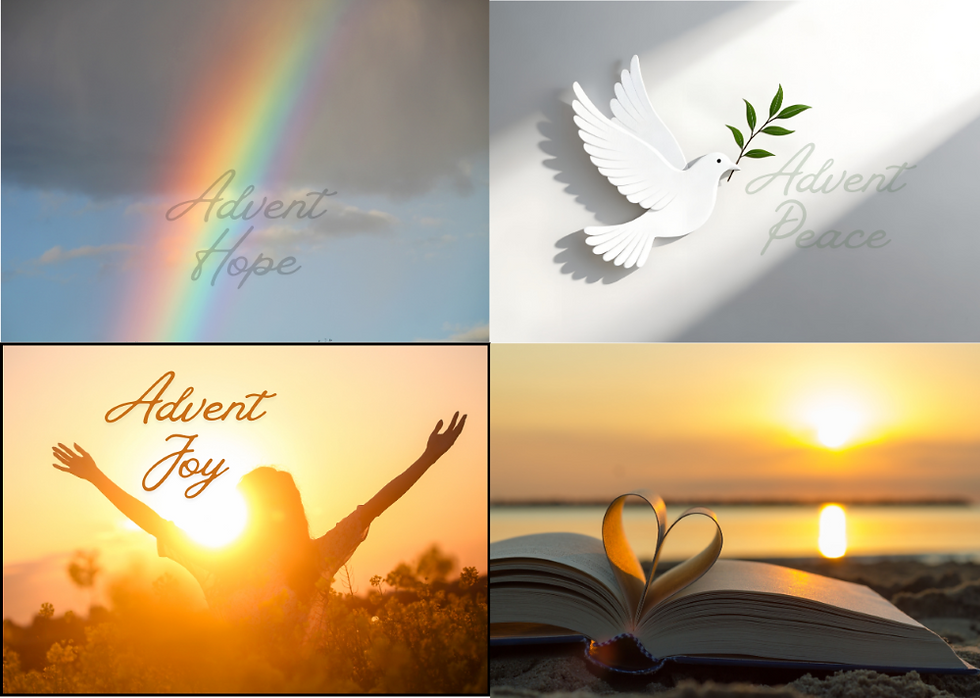Rethinking wilderness
- Simon Mattholie

- Jul 25, 2024
- 4 min read
I am currently reading Victoria Loorz’s book Church of the Wild, in which she uses a quote to describe the wild as “A place where mystery is experienced rather than explained.” I found this a helpful insight, which I believe could also be applied to the Wilderness, a place where the Holy Spirit has recently been disrupting my thinking.

The Wilderness is prevalent in Scripture, frequently serving as the setting for significant events. Perhaps best known of all is the time that God released His people from Egyptian slavery, purposefully taking them on a transforming 40-year journey rather than directly to the Promised Land. At first glance, the concept of Wilderness does not sound appealing. It is notoriously perceived as difficult, lonely, and deafeningly silent, regarded by many as a place of punishment. And yet, as I am beginning to notice, the Wilderness is frequently a place where God speaks with His people. For example, Moses heard God speak whilst gazing at a burning bush. Or where God spoke with Hagar (Genesis 21). There is the account of God speaking to and meeting the needs of Elijah in the Wilderness (1 Kings 19). It was in the desert when God spoke to John the Baptist, who spent most of his life there, becoming known as the Voice Calling in the Wilderness (Matthew 3). The Wilderness of the Judean Hills is where the Holy Spirit sent Jesus before the start of his public ministry so that God could converse with him (Matthew 4).
So many wilderness stories are filled with miracles, provision, encounter, and speaking. The wilderness is a place of clarity, and the times spent in it are never wasted—on the contrary, God uses these moments to communicate something meaningful and powerful. God is present in the Wilderness and makes Himself known in the desert.
The Hebrew language, in which a significant portion of the Bible was written, carries so much depth. We can sometimes lose the complex meaning of a word if we only look at its translation. At a recent Rural Hub at Launde Abbey, one of the ladies attending shared how the Wilderness or Desert could mean a place of speaking; this caught my attention. I am no language expert; however, I understand that many seemingly different words can be connected in Hebrew because they have a common root in their core letters. The Hebrew word for the desert is MIDBAR. Because there are no vowels in Hebrew, the letters that spell it out are M-D-B-R. Coincidentally, this is also how you spell another Hebrew word, MEDABER – to speak.
Jesus was led by the Holy Spirit to the Midbar – the desert so that God could Medaber – speak to him. Jesus didn’t wander into the desert by accident. He went there on purpose because He wanted to hear from God. In the desert, Jesus was baptised, and God announced to the world that He loved His Son!
Indeed, this shows us the richness and depth of the meaning of Wilderness throughout the Bible. Neither Abraham, Moses, Isaiah, nor Elijah were in the Wilderness by accident; God wanted to speak with them. What better place for an important meeting than one without distractions? Not only does the Wilderness focus the attention on God, but it also prepares people for what is ahead. For example, Joseph’s ‘wilderness experience’ prepared him to be second-in-command over Egypt. Moses’ wilderness experience prepared him to return to Egypt, risk his life challenging Pharaoh, and freeing God’s beloved, chosen people. Jesus’ Wilderness prepared him for his core ministry.
Many today discern that the Church in the West is in a season of Wilderness wandering, a place of liminality. There are many arguments for this to be the case; indeed, we have made a number ourselves. However, I cannot help but wonder how much of our time as Church is caught up in survival mode, addressing our needs and solving our problems. It is as if our pain and circumstances scream for attention, so much that we risk forgetting the bigger picture, as noted by Rachel Adel Postler. Could it be that in the Wilderness and deserts, God is preparing us for the next chapter, helping us see the bigger picture, focusing on Him and preparing us for what is ahead? Perhaps our view of the Wilderness and deserts needs some realignment to enable us to see them as a place of encounter, a place of speaking, a place of nourishment and provision, a place where God can reveal His plan and show Himself in greater detail than before.
In our Western cultures, we are very used to our comforts. Even as followers of Jesus, we try to avoid ‘the desert’. We don’t like it when life gets hard, barren, or lonely. The Wilderness makes us feel isolated, so we do all we can to escape it. However, if we began to understand how the Hebrew root of the word for ‘wilderness’ means ‘mouth’ or ‘speaking’, would we still seek to avoid it - what might God want to say to us now? Could it be in the current climate, we are each called to a place where mystery is experienced rather than explained? Friends, welcome to the Wilderness.
A voice cries:
“In the wilderness prepare the way of the LORD; make straight in the desert a highway for our God. Every valley shall be lifted up, and every mountain and hill be made low; the uneven ground shall become level, and the rough places a plain. And the glory of the LORD shall be revealed, and all flesh shall see it together, for the mouth of the LORD has spoken.”
Isaiah 40:3-5 (ESV)
Simon Mattholie CEO, Rural Ministries



Very comforting!
Thanks